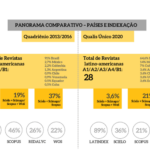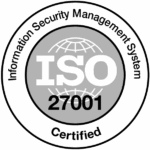 In the last week of October of 2014 it was celebrated around the world the “International Open Data Week” and, on the occasion of this celebration, it was held at the Escuela Técnica Superior de Ingeniería Informática de la Universitat Politécnica de Valencia, the “1st International Workshop on Open Research Data”.
In the last week of October of 2014 it was celebrated around the world the “International Open Data Week” and, on the occasion of this celebration, it was held at the Escuela Técnica Superior de Ingeniería Informática de la Universitat Politécnica de Valencia, the “1st International Workshop on Open Research Data”.
The objective of this workshop was to present the current state of openness of scientific research data in the world, the available policies to promote this sharing data model, and to analyze principles for the development of guidelines to promote openness to knowledge.
It is well known to all the Open Access (OA) movement to scientific literature, since it is the model operated by SciELO since its inception 16 years ago, to which over a thousand journals worldwide have joined. Increasingly, researchers publish their work in OA journals and also include them in repositories in OA libraries. However, the same does not occur with the research data that are the basis of these works, due to the fact that the paradigm of Open Data is not as well known or extended, nor its real importance is understood. The consequence is that with little available data, innovation is not stimulated nor additional discoveries are promoted, or scientific advances can be made more economical.
The Open Data movement proposes:
- Studying the best ways to preserve and share scientific data results of the experiments and research.
- Making possible the visibility of science generated in all countries and institutions.
- Maximizing the return on investment in research to foster the exchange and reuse of primary data in a generalized and standardized way.
- Determining systematic policies focused at increasing the competitiveness of research-based data management.
Among the various presentations at this workshop we commented, the following four stand up.
Herbert Grüttenmeier from DataCite presented the integrated services provided by this company1. Using DOI technology, the service provides a portal that links the catalogs of scientific publications with scientific content providers in all kinds of research data repositories (text, software, images, simulation, 3D objects, etc.). The data, when available, can be used for data mining, be reproduced and disseminated, free of cost for users.
DataCite has been operating since 2009 and it incorporates as affiliates many of the most important research centers in the world. To sum up this service in a familiar image, let’s say, just like WoS offers citation indexes, this company offers a similar service called “Data Citation Index” in which scientific journals are linked to the original data supporting the published articles.
Fernanda Peset, from the Universitat Politécnica de Valencia, explains the need to make a Plan de Gestión de Datos2, including organize, store and retrieve data, preserving the intellectual property rights of the parties involved.
The European Community, in a 2014 project3, supports data preservation initiatives to lead to a successful data economy. A data management plan should incorporate the cooperation of several new professional areas: Data Manager, Data Creator, Data Librarian, Data Scientist, which gives rise to a new specialty called “data curation” in the digital environment. This plan, in addition, to be sustainable, must incorporate the necessary resources such as standards, metadata and security. Finally, examples of some existing services on the Internet are shown, such as Figshare, Dryad, Dataverse, and Zenodo.
Alexandre López-Borrull of Universitat Oberta de Catalunya explains the legal, ethical and social considerations that preservation of open data incorporates4, an important discussion which arises, with, however, still many unsolved questions.
The first reflection made by López-Borrull is to take into account that data can be large and abundant, but are neither neutral nor innocuous and therefore, if misused can produce “informational harm”. This impact may be different if we consider the research in the area of Biomedicine, or in Science and Technology or the Social Sciences. Finally, the presentation makes a long reflection on Intellectual Property on the Internet, databases, and it also considers the issues of privacy, the right to oblivion and anonymity.
In the presentation by Dr. Mario Pérez-Montoro5 of the University of Barcelona, the state of the art of Open Data Visualization is presented by means of the use of charts, graphs, diagrams and maps that help to interpret the contents through visual representations.
My reflection
About the subject Open Data we have written on several occasions in the SciELO in Perspective blog, and we have been indicating that one of the indexing criteria of SciELO Brasil is the positioning of the journals on the availability of research data.
However, looking at the advances that are occurring in the last five years in the most advanced countries in research and development, we must recognize that in the region where SciELO mostly operates there is no clear policy (let alone mandatories) to archive the data, the authors are unaware of the paradigm shift, nor the Librarian Science and Information Faculties are preparing professionals with profiles aligned with this very important skill that is opening up in the market.
Notes
1 GRÜTTENMEIER, H. DataCite – services and support for opening up research data. In: 1st International Workshop on Open Research Data, Valencia, 2014. 89 slides. Available from: http://mugi.webs.upv.es/wp-content/uploads/2014/10/DDataCite_Valencia.pdf
2 PESET, F. Datos de investigación. In: 1st International Workshop on Open Research Data, Valencia, 2014. 83 slides. Available from: http://mugi.webs.upv.es/wp-content/uploads/2014/10/13-Fpeset-Curso-RD.pdf
3 Comunicación de la Comisión al Parlamenteo Europeo, al Consejo, al Comité Económico y Social Europeo y al Comité de las Regiones: Hacia una economía de los datos próspera. Comisión Europea. 2014. Available from: http://eur-lex.europa.eu/legal-content/ES/TXT/PDF/?uri=COM:2014:442:FIN&rid=1
4 LÓPEZ-BORRULL, A. Consideraciones legales y éticas de los datos. In: 1st International Workshop on Open Research Data, Valencia, 2014. 55 slides. Available from: http://www.slideshare.net/alopezbo/consideraciones-legales-y-ticas-de-los-datos
5 PÉREZ-MONTORO, M. Visualización de datos abiertos. In: 1st International Workshop on Open Research Data, Valencia, 2014. 44 slides. Available from: http://mugi.webs.upv.es/wp-content/uploads/2014/10/Visualizaci%C3%B3n-datos-abiertos-UPV.pdf
References
1st International Workshop on Open Research Data. International OpenAccess Week. [viewed 23 November 2014] Available from: http://www.openaccessweek.org/events/1st-international-workshop-on-open-research-data
Balance y presentaciones del 1st International Workshop on Open Research Data. Universitat Politécnica de Valencia: Escuela Técnica Superior de Ingeniería Informática. [viewed 23 November 2014]. Available from: http://mugi.webs.upv.es/balance-y-presentaciones-del-1st-international-workshop-open-research-data/
Critérios, política e procedimentos para a admissão e a permanência de periódicos científicos na Coleção SciELO Brasil. SciELO. 2014. Available from: http://www.scielo.br/avaliacao/Criterios-SciELO-Brasil-20141003.pdf
Open-Data: liquid information, democracy, innovation… the times they are a-changin’. SciELO in Perspective. [viewed 23 November 2014]. Available from: http://blog.scielo.org/en/2013/11/18/open-data-liquid-information-democracy-innovation-the-times-they-are-a-changin/
The Open Data movement: international consolidation. SciELO in Perspective. [viewed 23 November 2014]. Available from: http://blog.scielo.org/en/2014/07/14/the-open-data-movement-international-consolidation/
Exchange of research data remains low and increases slowly. SciELO in Perspective. [viewed 23 November 2014]. Available from: http://blog.scielo.org/en/2014/11/12/exchange-of-research-data-remains-low-and-increases-slowly/
External Links
DATASEA – Datos Abiertos de Investigación – Open Research Data – <http://www.datasea.es/dt/>
Data preservation tools:
DRYAD – <http://datadryad.org>
Zenodo – <https://zenodo.org>
Figshare – <http://figshare.com>
Dataverse – <http://thedata.harvard.edu/dvn/>
 About Ernesto Spinak
About Ernesto Spinak
Collaborator on the SciELO program, a Systems Engineer with a Bachelor’s degree in Library Science, and a Diploma of Advanced Studies from the Universitat Oberta de Catalunya (Barcelona, Spain) and a Master’s in “Sociedad de la Información” (Information Society) from the same university. Currently has a consulting company that provides services in information projects to 14 government institutions and universities in Uruguay.
Como citar este post [ISO 690/2010]:

















Recent Comments